By Debbie Burke
@burke_writer
On Saturday, Steve Hooley kicked off Part 1 of the TKZ Marketing Survey. Today, I’ll cover the rest of the results and sum up our findings.
Before we get started, please indulge me for a moment. Back in November, I wrote about my good friend astrophysicist Sarah Rugheimer who’d been selected to deliver a TED talk. Several readers asked when her talk would go live. Yesterday was the day! Congratulations, Sarah! Here’s the link.
~~~
 Garry Rodgers’s answers (indie pub):
Garry Rodgers’s answers (indie pub):
What is your goal with marketing?
Two things which are intertwined. One is to sell more books (products). The other is to increase discoverability. Increasing my discoverability by distributing my brand in as many places as possible organically sells more books. By selling more books, I create read-through which increases my discoverability. Never underestimate the power of “word-of-mouse”.
What marketing do you do?
I’ve appeared on many podcasts and blog interviews. I can’t say I’ve ever struck gold from one, but each exposure increases discoverability. (“You are the worst writer I’ve ever heard of.” “Yes. But you have heard of me.”)
Blogging – Website
Blogging is *BY FAR* the best ROI I’ve ever had. That includes my own blog at DyingWords, the Kill Zone posts, and many guest pieces I’ve done on other sites. Recently, I was “found” by a NYC film producer who landed on one of my old posts. It led to discussions and to a potential NetFlix series which I’m outlining a proposal for as we speak.
Newsletter
I have 2100 subscribers on my mailing list, and I send out a new blog post every second Saturday – consistently. I get about 500 click-throughs so I’m happy with that. I’m in a publishing cycle of 1 book every 2 months so I put a post out promoting the release. However, when I look at my sales stats right after a newsletter, I don’t see any spike. I know the gurus say “Mailing List Mailing List Mailing List” but I’m not seeing it directly tied to sales spikes – It’s the long term exposure and a slow reader growth that pays off.
Which social media platforms?
I do Facebook for personal laughs and Twitter for sharing writing stuff and making connections. I have an author FB page but haven’t done anything with it which is likely why there’s no return on it. I have a friend who writes under the pen name Chevy Stevens (because her real name is too hard to pronounce) who has killer FB returns and is her main reader connection. Twitter has been good for making personal connections in the writing business, but I can’t say it’s sold anything directly.
Paid ads
Now we’re talking returns. Pay-to-play ads are THE Thing that works for me. My money-maker is my based-on-true-crime series which is at Book #8. I have about 20 publications out there, but the read-through from the series is working very well. I have book 1 as perma-free and pay to advertise it on the discount newsletters – Ereader News Today (ENT) is the best payback. Last campaign resulted in 5K downloads and generated a read-through which brought a 3 to 1 return on investment. The other good returns are from Robin Reads, Fussy Librarian, Free Booksy, Bargain Booksy, Book Doggy, and Book Gorilla. I’ve tried one BookBub ad which was a flop and I have yet to try FB and AZ ads.
Conferences – networking
I’ve never been to a live writing conference. I was going to go to Bouchercon last year but you-know-who showed up and threw a wrench into the travel spokes. I’ve taken in a bunch of online conferences and webinars but you don’t get personal connections this way – at least not from my experience. I’ve cold-called high profile people on Twitter and have had surprisingly good results in having them guest appear on my blogsite.
Others
Absolutely nothing beats building a backlist and creating read-through. “Write More Books” is the best advice I’ve ever gotten, and that’s where I put most of my efforts at the moment. I changed my mindset last February to treat my writing like a business and not a hobby. I credit Adam Croft for this. Adam and I have been personal friends for ten years – I say back when Adam wasn’t famous and I still had color in my hair. Adam’s book, The Indie Author Mindset, https://www.amazon.com/Indie-Author-Mindset-changing-transform-ebook/dp/B07FZ3X349/ is a MUST-READ for any indie who intends to “make it” in this biz.
“Going Wide” is another must-do tactic. I started on Kobo and Nook last April and have had over 30K downloads in 66 different countries since then. Yes, many are freebies but the discoverability and read-through in paid sales has been remarkable – truly rewarding and motivating to write more books.
For each specific activity above that you use, how much time do you estimate that you spend (per week? per month?)
I keep a journal/daily log where I track my time in 15 minute blocks. On a good writing day, I get in 3,000 – 3,500 words and I write about 1,000 words per hour so that’s 3 – 3.5 solid writing hours per day. Most days I put in 8 – 10 hours of solid time in what I call the four Ps – Production, Publishing, Promotion, and Perfection. Production is about 5 days per week. Publishing goes in spurts – 1 book every 2 months. Promotion is all the time – here, there & everywhere – every action is some sort of promotion (like this). Perfection never happens but what I mean by this is craft improvement. I read a lot and across the board, not just genre specific. I just finished a book titled “Profiles In Folly” which is about world-changing stupid things done by influential people. Hopefully, I don’t appear in the sequel.
For each activity above that you use, what do you estimate is your return on investment? Which one do you think is the most effective?
Write more books is the most effective. Pay-to-play ads is second. Networking with influencers who can increase discoverability is a close third.
What resources have been most helpful to you in learning the above?
These publications: “Indie Author Mindset” – Adam Croft, “On Writing” – Stephen King, “Elements of Style” – Strunk & White, “Wired For Story” – Lisa Cron, “Thanks, But This Isn’t For Us” – Jessica Page Morrell, “Self-Editing For Fiction Writers” – Dave King & Renni Browne, and “Think And Grow Rich” – Napoleon Hill.
What changes have you made to your marketing b/c of the pandemic?
I have to say the pandemic was the best thing ever for my writing business. It was coincidental that I changed my mindset last February just before this thing hit, but I increased my output and promotions. I think more people had more time to read and were looking for new stuff as well as more people turning to ebooks because they couldn’t get out to the bricks & mortar stores – plus they also got comfortable with ereading devices. So it was the perfect storm that propelled me from zero to hero. I can’t wait for the next wave. Bring it! J
Knowing what you know now, what would you do differently if you were starting over?
I would have taken this more seriously far earlier. You can’t turn back the clock of reality – only go forward with the flow and write more books. Write, publish, repeat – as they say.
Where do you sell your books?
Amazon – 70%. Kobo – 29. Nook – 1%. I’m going to publish on Apple and Google this year. Plus look into print and audio options. Amazon is strong in the US and the UK, but Kobo (Rakutan) has immense world-wide reach. Nook is barely worth the effort however I hear great things about Apple.
Series with a permafree first issue really works. And you’ve got to keep your name out there – you never know when Netflix comes calling.
~~~
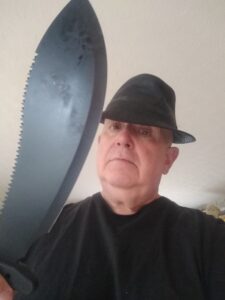 Joe Hartlaub’s answers (trad pub):
Joe Hartlaub’s answers (trad pub):
What is your goal with marketing? Get my name out there.
What marketing do you do or participate in? Zoom interviews, blogging at killzoneblog.com,
Facebook, networking at Bouchercon.
For each specific activity above that you use, how much time do you estimate that you spend (per week? per month?) Irregularly, unfortunately.
For each activity above that you use, what do you estimate is your return on investment? Which one do you think is the most effective? Blogging and networking.
What resources have been most helpful to you in learning the above? Just getting out there and learning along the way.
What changes have you made to your marketing b/c of the pandemic? No Bouchercon!
Knowing what you know now, what would you do differently if you were starting over? I would have started getting involved with the writing community earlier than I did.
~~~
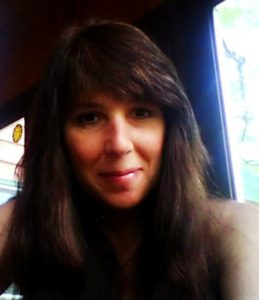 Sue Coletta’s answers (trad pub):
Sue Coletta’s answers (trad pub):
What is your goal with marketing? To reach a wider audience.
What marketing do you do or participate in? Speaking – Zoom – Podcasts – Book Tours – interviews – Blogging – Website – Newsletter – Social media – Conferences – networking
All of the above. I’ve done Zoom book events, appeared on podcasts, blog tours, interviews, and in-person appearances (in the nice weather). I blog on TKZ and my site, Murder Blog. If it weren’t for my website/blog, I would’ve missed out on so many amazing opportunities. Some authors say writers don’t need to blog, but I disagree. We all need a home base where readers/agents/publishers can find you, and social media is NOT a home base. Last year, I buckled down to write a separate newsletter for readers (I’ve always sent blog-related newsletters), and the response has been positive so far. Networking with other writers is key. The writing community is a generous, kind, funny, little crazy tribe, and I wouldn’t trade any of them. J
For each specific activity above that you use, how much time do you estimate that you spend (per week? per month?) Depends if I have a new release or what I’m doing. Zoom events take a lot longer than, say, social media marketing.
For each activity above that you use, what do you estimate is your return on investment? Which one do you think is the most effective? I think it’s all important. I view marketing as a sum of its parts (blogging, social media, book signings, etc). Most effective? Appearances, either in person or virtual.
What resources have been most helpful to you in learning the above? Other writers. Nine times out of ten, a writer will share advice with another writer. It’s what we do.
What changes have you made to your marketing b/c of the pandemic? I’ve done a lot more virtual events than in person. Now that I’m fully vaccinated (yay!) I’ve booked my usual venues for the upcoming season.
Knowing what you know now, what would you do differently if you were starting over? Too many things to mention. Top answer: Plan where you want to see your career in five years, ten years, fifteen years. Then be patient and choose an agent or house that can help you achieve your goals.
~~~
 Debbie Burke’s answers (indie pub):
Debbie Burke’s answers (indie pub):
What is your goal with marketing? Connect PERSONALLY with as many readers as possible b/c I strongly believe in old-fashioned word-of-mouth recommendations. That is more rewarding to me than 10K followers I’ll never meet. I’d like to sell more books but thankfully I don’t depend on writing income to survive.
What marketing do you do? Zoom discussions with book clubs and educational presentations for writing groups. Radio and newspaper interviews in my local area.
Blogging – Website Not as much as I should for my own blog/website. Most blogging is for TKZ.
Social media – Twitter only for name recognition. I doubt that generates sales.
Paid ads – In the past, I’ve bought cheap ads ($50 and under) directed to mystery/thriller genre readers. Never broke even. Trying out some of Garry’s strategies and will report back later.
A personal observation – I’m deluged with constant ads and am sick of them. I rarely buy any product solely b/c of an ad. Most of the time, I delete w/o reading them. I suspect I’m not alone in that feeling.
Conferences – In the past, in-person appearances/workshops at conferences.
Networking – most speaking invitations come from networking with people I know or have met from previous appearances.
Others – I have had good luck partnering with other authors for appearances. Two other authors and I give presentations as the “Montana Women of Mystery.”
For each specific activity above that you use, how much time do you estimate that you spend (per week? per month?)
Speaking, classes, workshops – 5+ hours prep time per event plus presentation time. Blogging – 10+ hours/month.
Social media – 1 hour/month.
For each activity above that you use, what do you estimate is your return on investment? Which one do you think is the most effective? At book clubs, close to 100% of participants buy books, but numbers are small since most clubs have fewer than 20 members. For general speaking appearances, 20-25% of participants buy books. In 2017-2019, blogging on TKZ resulted in significant sales spikes but tapered off in 2020-2021. I suspect any TKZ regulars who are interested have already bought my books so that market is somewhat saturated. However, exposure and repetition are still important. When readers see my name regularly, like blogging on TKZ every other week, they think of me. I just spoke to a mystery group in Arizona that found me through TKZ.
What resources have been most helpful to you in learning the above? JSB’s book Marketing for Writers Who Hate Marketing; Jane Friedman’s blog; Dave Chesson’s Kindlepreneur; Authors Guild discussion groups; asking other authors what works for them; trial and error.
What changes have you made to your marketing b/c of the pandemic? Zoom instead of in-person appearances. Zoom allows meeting with groups outside my local area. I’m increasing those promotions b/c appearances work better for me than advertising.
Knowing what you know now, what would you do differently if you were starting over? I wish I’d gotten my rights back sooner from the original publisher and rereleased the book independently.
My sales are not great but I only have so much time and energy. I’d rather concentrate on writing more books. Now that six are available, I’m increasing promotion and see a gradual but steady increase in sales. Readers of my prior books are repeat customers. My following is small but loyal and growing. I still feel producing more product is more important than advertising.
Where do you sell your books? For several years, my books were exclusive with Amazon but there is no longer any advantage to exclusivity. Several months ago (prompted by Garry and Terry), I “went wide” and books are now for sale at B&N, Kobo, Apple, and other online markets through Draft2Digital – too soon to see results but wider availability can’t hurt; local indie bookstores sell paperbacks; I sell paperbacks at book signings and presentations.
~~~
What do all these results add up to?
Besides increased sales, several consistent themes for the goal of marketing were repeated: name recognition, discoverability, word-of-mouth, and building customer loyalty.
Seven contributors mentioned Zoom as an important development that’s replaced in-person appearances. Two additionally mentioned doing Zoom appearances in partnership with other authors.
According to all nine survey respondents, blogging is definitely not dead. Several said they’d cut back on other blogging but continue with TKZ.
Six authors use newsletters.
Paid ads yield the most varied responses, with some authors having good results while others didn’t believe ads were worth the cost. BookBub was mentioned several times as the most effective advertising.
Social media is viewed by the majority as a necessary evil that doesn’t generally sell books but increases name recognition. Several complained SM wastes too much time but needs to be done. Facebook and Twitter are the most used venues, although a couple of authors mentioned You Tube and podcasts.
Jim Bell offers wise advice about social media in his book Marketing for Writers who Hate to Market:
“Here is my advice regarding social media.
Pick one platform to specialize in.
One.
Pick the one you enjoy most, or think you can handle best.
If you want to have a presence on other platforms, to experiment, go ahead. But place your focus on one.
Use it to the extent you enjoy it, and no more.
Use it for actual engagement with those who follow you.
Be a good content provider, and a good listener.
Avoid venting your spleen on social media. Because besides being a lousy place to sell books, it’s a horrible place to take controversial positions. There is no true discussion here, because that’s not what social media is set up for.
Don’t post drunk.
Make all people glad they follow you.
Earn trust. When it’s time to mention a book, you’ll have earned the right to do so.”
Nearly all authors lamented the loss of in-person conferences. Two have not previously attended conferences and expressed disappointment over cancellations.
Networking at conferences was cited as enormously important because those contacts often opened up other opportunities as well as marketing avenues.
Two indie authors mentioned “going wide” to other sales outlets besides Amazon.
“Write more books” was noted by most respondents as the best marketing tool.
This survey confirmed that there is no marketing magic bullet. It’s time-consuming, long-term work. Results don’t happen overnight. But, if we want to sell books, we gotta do it.
Steve, thanks for coming up with this topic and including me as your co-conspirator. Thanks also to the TKZ family who answered questions and shared helpful insights.
~~~
Over to you, TKZers. What type of marketing is most productive for you? Did you learn any new methods from this survey you’d like to try?
~~~
Note: I’m taking Garry’s advice on “permafree” for the first book in my series. So far, results look very promising. Thanks, Garry!
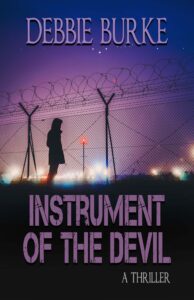
Instrument of the Devil is now FREE. Please give it a read. If you like it, come back and check out five more books in the Tawny Lindholm Thriller series.




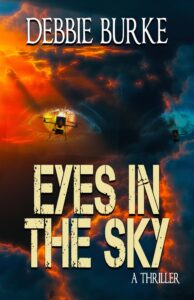

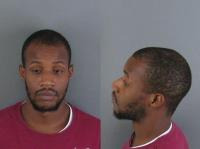
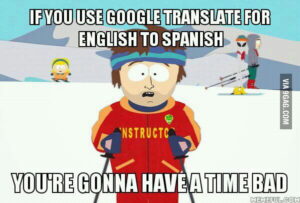 [Side note: English is a particularly difficult language for non-native speakers to learn because it’s full of inconsistencies and contradictory rules. If you didn’t learn English as a first language, please accept my condolences for the misery you’re going through.]
[Side note: English is a particularly difficult language for non-native speakers to learn because it’s full of inconsistencies and contradictory rules. If you didn’t learn English as a first language, please accept my condolences for the misery you’re going through.]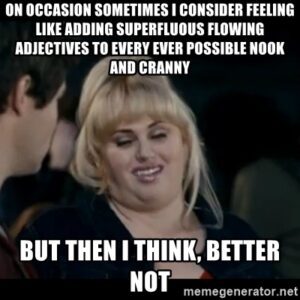
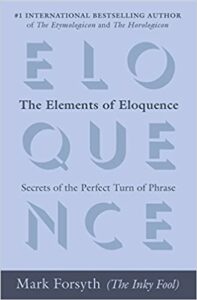 Recently I learned that new lesson when TKZ regular Chuck sent me an interesting article that quotes
Recently I learned that new lesson when TKZ regular Chuck sent me an interesting article that quotes 
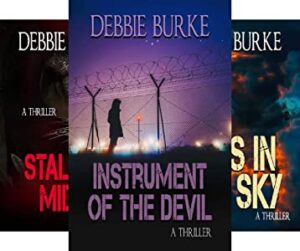
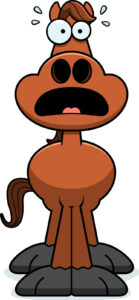
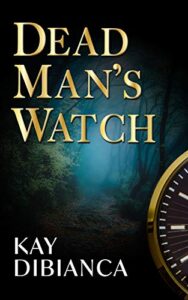

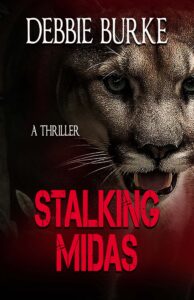



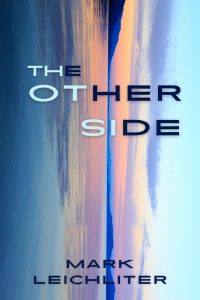

 Garry Rodgers’s answers (indie pub):
Garry Rodgers’s answers (indie pub): Joe Hartlaub’s answers (trad pub):
Joe Hartlaub’s answers (trad pub):  Sue Coletta’s answers (trad pub):
Sue Coletta’s answers (trad pub):  Debbie Burke’s answers (indie pub):
Debbie Burke’s answers (indie pub):